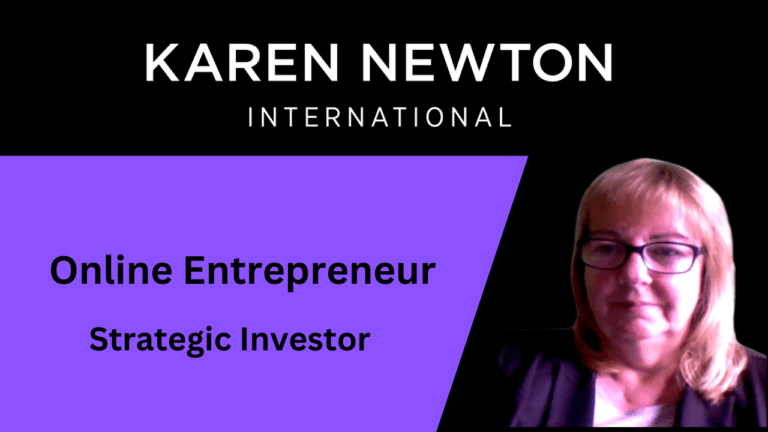Online Keyword Research Tool
Understanding the essence of search engine optimization (SEO) begins with keyword research.
It’s the linchpin that connects your content with your audience’s search queries. Focusing on the right keywords creates a bridge between the information gap you provide and what your audience seeks online.
In this post, we look at the tools and systems that make this process easier.
Despite the numerous updates by Google for removing AI-created and spamming content and the scaremongering that keyword research is dead, the reality is, that search engines use keywords to identify the audience to view your content.
Learning how to use keyword research and audience intent is still the major way of getting your information to the forefront.
Audience Intent
Identifying your target audience’s search intent is critical.
When a visitor views your website you don’t know if they are there to learn about a specific topic or if they intend to buy.
Creating different types of content on your website that syncs across the intent for visiting your site helps the ranking of the website and increases the opportunity for sales.
For example – I don’t know if you are reading this article because you want to learn more about SEO; keyword research or are researching different keyword tools.
So, in this blog you’ll learn about SEO and keyword research. You’ll see links to other posts that will provide more information about SEO in general and keyword research but you’ll also find links to purchase the software I use.
This way, I have covered the intent, of you, the visitor to the website.
Keyword Research
While high search volumes may appear attractive, remember that often comes with increased competition. The sweet spot lies in finding keywords that strike an optimal balance between search volume and keyword difficulty. This approach can provide better opportunities for your content to rank.
Keyword Research is a topic that has, on average, 5690 searches per month.
I can see you rubbing your hands with glee and thinking thats a good number of people who will see my website. But the opposite could be true.
Because so many people are using this search criteria there is a lot of competition from other websites all covering the topic of keyword research. An estimated 300 websites.
A better approach is to break that down to a smaller topic. Is your visitor’s intent looking for information about keyword research or SEO keyword research tools?
If I use the phrase “SEO Keyword Research Tools” the competition is only 186 websites and there is a better chance for the post to rank higher.
This is known as Long-tail keywords. They are less common and more specific, but they can be golden.
These tend to have lower search volume, yes, but they also have lower competition and higher conversion rates.
Google EEAT
One of the biggest changes made through Google Search is incorporating Expertise, Experience, Authoritativeness, and Trustworthiness (E-E-A-T) into the keyword selection process.
This means creating content that shows you are thinking about the visitor to your website. Proving with your content that you know your topic.
EEAT isn’t just an option; it’s ESSENTIAL for content quality and reliability by ensuring that the keywords apply to your area of expertise and bolster the credibility of your website.
Reworking Content for Good Keyword SEO
Terminology is constantly changing, almost as fast as technology changes making sure the keywords used in your content are still relevant is an important part of keeping content fresh and to the forefront.
I regularly review content written on my website to see how it can be improved and if the keyword is still relevant.
My process is to use Google Search Console and review each page’s ranking. The lowest-ranked content is reviewed. Using keyword research I check the words are still relevant and rework the content as necessary to improve the ranking of the content.
Low-ranking content means customer intent wasn’t identified properly or the keyword in the content is no longer competitive.
A low-ranking post will drag the whole website ranking down.
Building keyword reviews into your SEO strategy keeps content relevant and ranking higher.
Lastly, the digital landscape changes rapidly, and so do search
Leveraging Jaaxy for Advanced Keyword Insights
With a solid understanding of keyword research cemented, it’s crucial to have the right tools in hand.
Enter Jaaxy, a powerful asset for anyone serious about SEO and content creation. Jaaxy isn’t just another keyword tool; it’s a comprehensive platform that offers deep insights into what drives online search behavior.
It is the platform I use to keep my content consistently ranking highly and relevant for visitors.
The video below shows how I use Jaaxy for keyword research.
Integrating Jaaxy‘s data with your content doesn’t just boost visibility; it strengthens your site’s E-E-A-T. By focusing on keywords that are relevant and authoritative within your niche, you’re more likely to create content that resonates with your audience and builds trust.
I also use Jaaxy to get ideas about the type of content potential visitors to my site want. Learn more about Jaxxy here
This ensures, I never run out of information to provide to visitors, while building EEAT and visitor numbers to my website.
If you are serious about building an online business then having the right tools such as Jaaxy is non-negotiable.
However, Jaaxy is not the only SEO Keyword Research tool.
Keyword Research Tool Competitors
Here is a list of Keyword Research Tools provided by Competitors to Jaaxy
1. Google Keyword Planner – This tool is provided by Google Ads and is a powerful resource for researching keywords and estimating their search volumes. It also offers suggestions and historical data on keyword performance.
2. Semrush – Semrush is a comprehensive SEO tool that provides keyword research, competitor analysis, backlink tracking, and more. It offers detailed keyword metrics such as search volume, keyword difficulty, and trends.
3. Ahrefs Keywords Explorer – Ahrefs is another all-in-one SEO tool that offers a robust keyword research feature. It provides data on search volume, keyword difficulty, clicks, and global search trends.
4. Moz Keyword Explorer – Moz offers a suite of SEO tools, and Keyword Explorer is one of its prominent features. It provides keyword suggestions, search volume data, difficulty scores, and SERP analysis.
5. Ubersuggest – Ubersuggest is a freemium keyword research tool that offers keyword ideas, search volume data, keyword difficulty scores, and domain analysis. It’s a user-friendly tool suitable for beginners and experienced SEO professionals alike.
These tools vary in terms of features, pricing, and user interface. Always look for which one suits your budget and needs.
Online Keyword Research Tools
Having the right keywords in your content is essential for improving rankings, driving traffic to your website and increasing sales.
Research manually is difficult so having the right keyword research tools in your armory will not only reduce the amount of time spent on research but help you understand your competitors and how your potential clients think.
Master online keyword research and you’ll always be at the top of the rankings and search engines.







